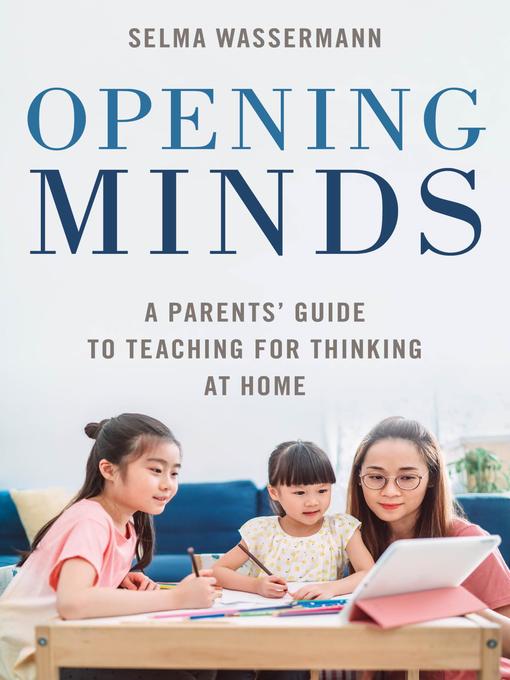
Opening Minds
A Parents' Guide to Teaching for Thinking at Home
- اطلاعات
- نقد و بررسی
- دیدگاه کاربران
نقد و بررسی

February 1, 2021
Wasserman, a professor and author of several educational books, provides a guide crammed with inquiries and activities for growth in higher-level thinking. During an unprecedented time, as many more children experience home-based schooling, they and their parents face new educational challenges on top of emotional turmoil, and parents have taken on additional roles. Learning to think intelligently necessitates both experience and further practice. Children who function well on low-level cognition are not always able to succeed at higher-level functioning tasks, and in order to grow they must have opportunities for thinking at all levels. The parent's role is to choose activities that match the development level and interests of their child. Divided into chapters by level, the book is full of ideas for incorporating observing, comparing, classifying, imagining, hypothesizing, and other advanced thinking skills. Sample activities for elementary students include finding similarities and differences between a sea turtle and a fish; creating a hypothesis about how spiders create webs and then testing it; and making a visual model of the circulatory system. VERDICT This work will prove valuable for teachers and parents with its hands-on activities.
Copyright 2021 Library Journal, LLC Used with permission.

February 15, 2021
Award-winning professor and author Wassermann has spent her career educating teachers. In this book, she shares her wealth of knowledge with parents and caregivers, explaining the importance of children developing higher-level cognitive thinking skills. She understands that parents are their children's best teachers, and writes, "As parents would contribute to improving children's reading abilities, so they might consider aiding and abetting what teachers do in classrooms to further children's intelligent habits of mind." Opening Minds walks caregivers through thirteen "thinking operations" and provides them with engaging activities for pre- and emerging readers as well as middle-grade students. With Wasserman's accessible ideas, children can practice higher-level cognitive skills from observing, comparing, classifying, and imagining to hypothesizing, summarizing, interpreting, and problem-solving after simple preparation and guidance from an adult at home. This incredibly useful guide for parents provides essential critical thinking practice to help kids successfully navigate today's ever-changing and challenging world.
COPYRIGHT(2021) Booklist, ALL RIGHTS RESERVED.

April 19, 2021
Parents can “become teacher-surrogates in implementing the very essential work of continuing to open children’s minds,” writes education professor Wassermann (Evaluation Without Tears) in this comprehensive if dry guide to filling the gaps created by school shutdowns during the pandemic. She argues that “our long-term survival” may depend on children’s ability to analyze, problem-solve, and innovate. In explaining how to engage and develop a child’s critical thinking skills, she breaks down a dozen “thinking operations.” Observing, for example, helps children make sense of the world, while comparing is a skill that leads to making better judgments. The heart of Wassermann’s guidance comes in the form of hundreds of activities, grouped by reading ability: there’s a list of questions to ask both pre-readers and middle grade students to help them form hypotheses, as well as lists of age-appropriate topics to compare, such as a bear and a pig for the younger group, and TV and radio for the older. Wassermann’s delivery, though, often reads like a textbook (“Parents will need to instruct children orally about the nature of the operation”), and not all of her exercises seem likely to engage modern children, such as asking a child to put an onion in a dish and observe its growth. Still, at its best this an informative deep-dive into what makes children critical thinkers.




دیدگاه کاربران